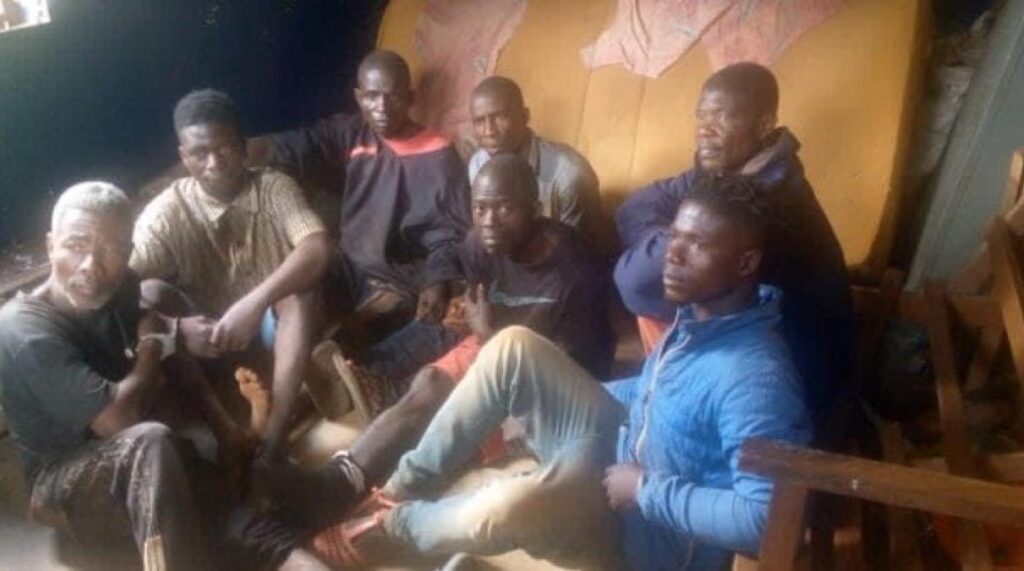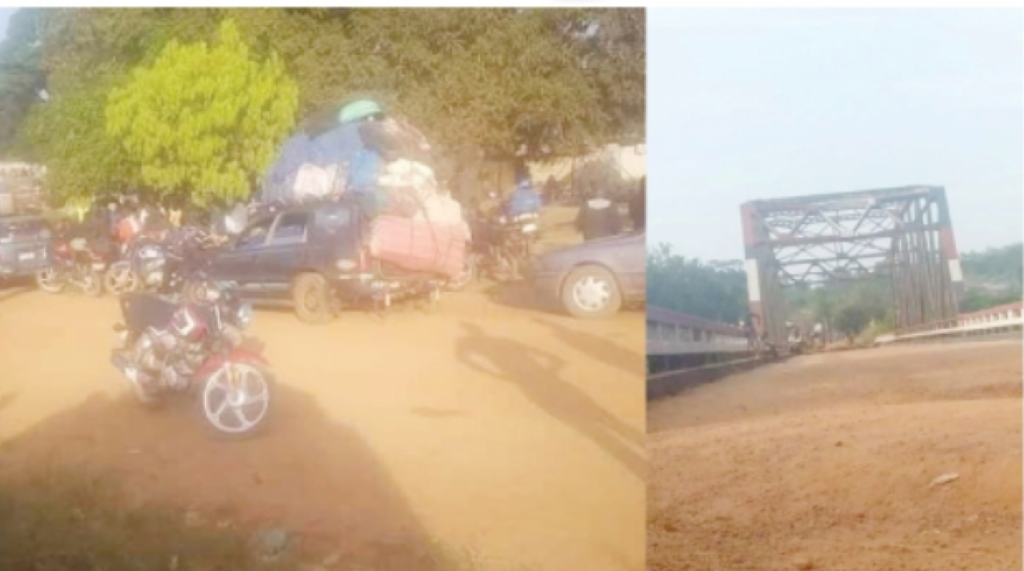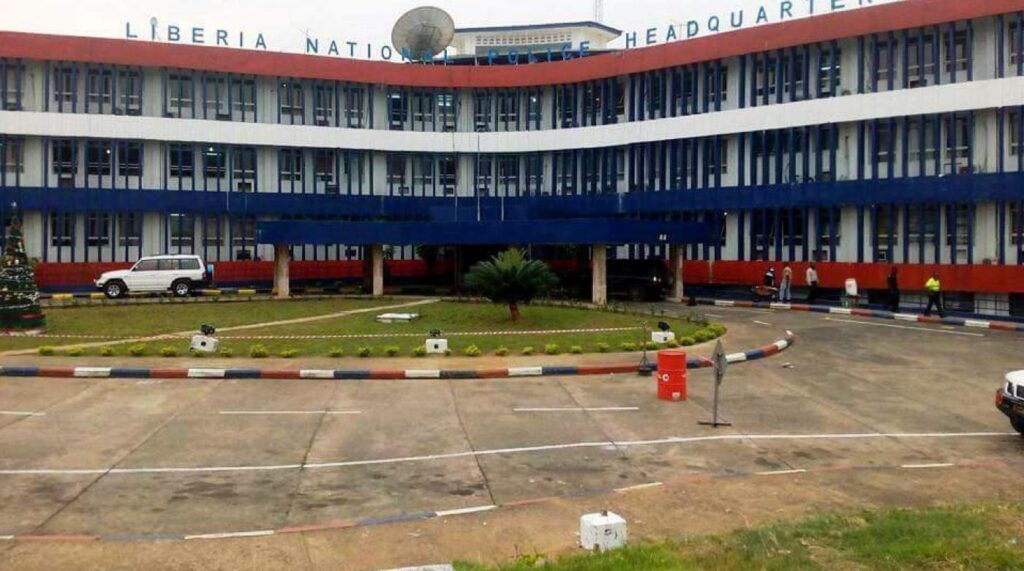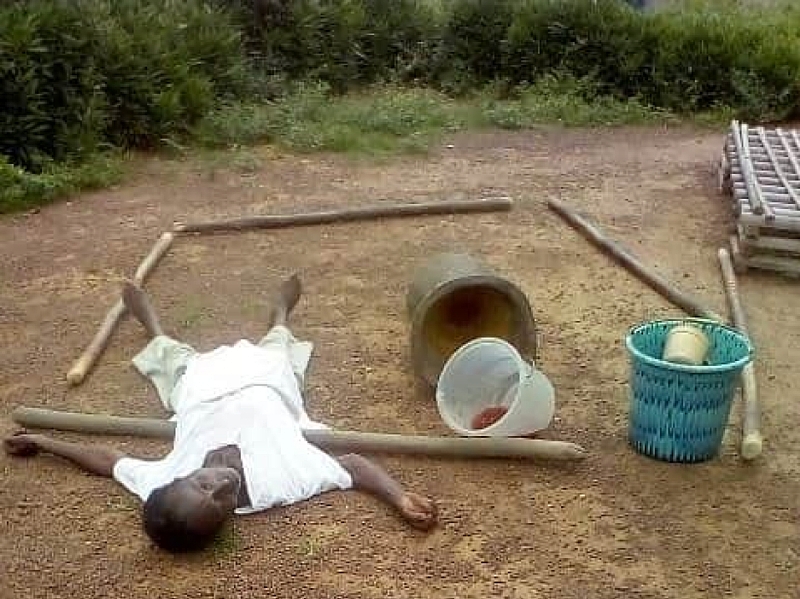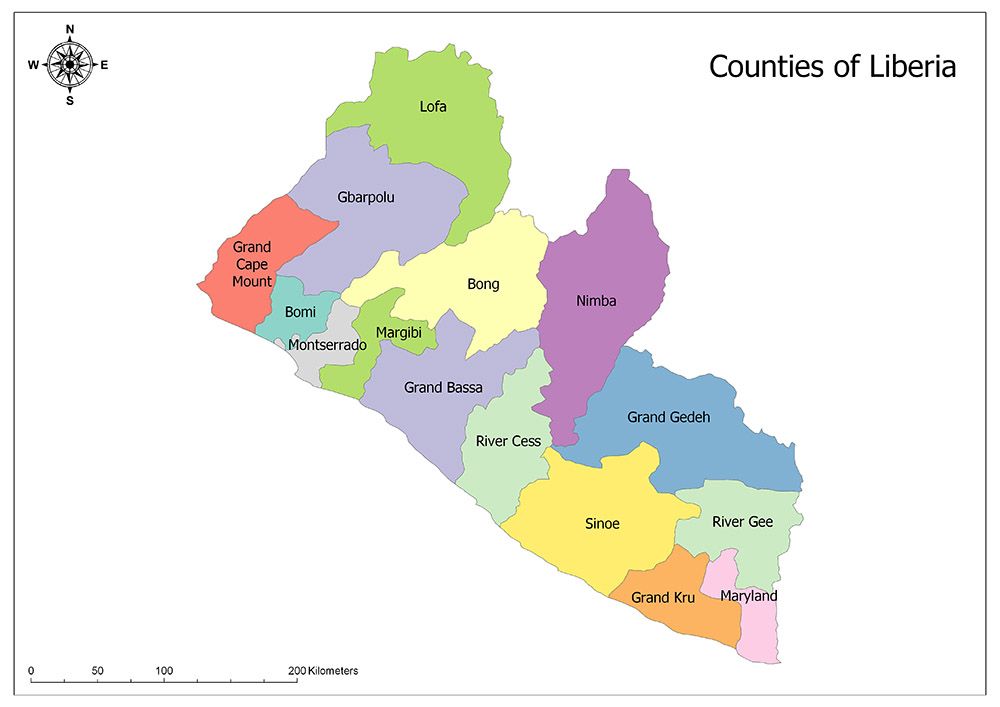A few days ago, on September 19, an important meeting took place in the United States, in the House of Representatives to be precise. A subcommittee on global human rights, of the Commission of Foreign Affairs, held a hearing on ‘Efforts to Address Ritual Abuse and Sacrifice in Africa’.
Witnesses invited to speak were Obed Byamugisha, Program Advisor, Kyampisi Childcare Ministries, Miriam Fullah, Trafficking in Persons Protection Manager, World Hope International, Dr. Alan White, Co-Executive Director, Advocacy Foundation for Human Rights and former Chief of Investigations of the Special Court for Sierra Leone (SCSL, which sentenced former Liberian warlord and president Charles Taylor to 50 years in prison), and Josephine Aparo, Founding Member, Global Survivor Network and International Justice Mission.
At least three leading Liberian newspapers published articles on the hearing, revelations and accusations notably of Dr. Alan White, who linked immediate past and present Liberian governments to ritualistic killings. The three articles – in the Daily Observer, Front Page Africa, and The New Dawn – are reproduced below. In a separate posting I will pay attention to the testimonies of the other witnesses.
The responsibility for the reporting on Dr. Alan White’s testimony in the three Liberian newspapers rests entirely with the publishers of said newspapers. White’s testimony addresses the roles of former president Sirleaf (2006 – 2018) and president Weah (2018 – present) and he formulates his observations and conclusions carefully. The newspapers’ headings are meant to attract the attention of the readers (buyers), without nuance. Therefore and to avoid any misunderstanding about White’s statements I’ve also included the full text of his important testimony (below).
Dr. White, who – as Chief Investigator of the SCSL – has extensive knowledge of ritualistic practices and abuses which occurred in Sierra Leone during this country’s civil war (1991-2002), also referred to these atrocities in his testimony. Moreover, he said, “This practice continues today in Sierra Leone and surges during election periods where people running for office believe that sacrificing a person, mostly younger boys and girls because it is believed the younger they are, the more power they get.”
With respect to Liberia he provides more than one example of ritualistic abuse and murder. His most serious accusation addresses the previous Administration of President Sirleaf and the present Weah Administration: “The Ellen Johnson Sirleaf administration during her 12 years (2006-2018) in office was plagued with ritual killings and despite vows to bring them to an end they continued. The same problems continue under the Weah administration and unlike Sirleaf there were no insiders reporting her direct involvement with the ritual killings. However, we have received information that current administration has been linked to ritualistic killings of children. Sources advise the police are not allowed to investigate these matters or if they do, it is done superficially as to not get to close to those involved. Also, because of the high-level links to the government it is taboo to say anything about it or otherwise you could be the next victim.”
White could hardly be more specific when stating: “The Foundation has received disturbing information about the frequency of such killings and the allegations linking it to the Executive Mansion (The Office of the President) and other high-ranking government officials. Details of these atrocities are difficult to obtain.”
On October 10, presidential and legislative elections will be held in Liberia. Should I add more?
(webmaster FVDK).
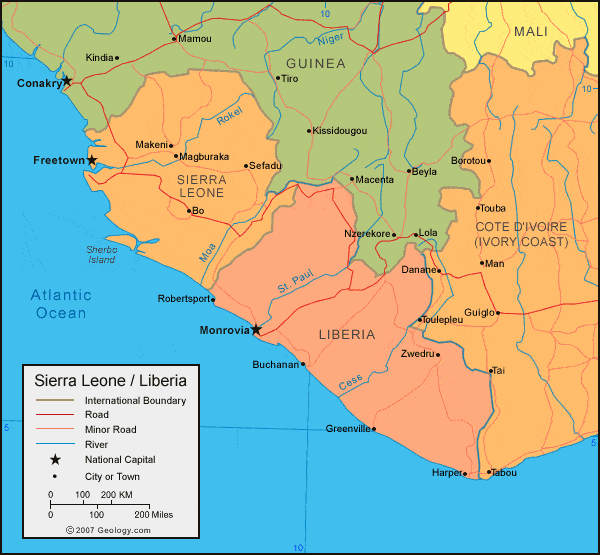
Liberia: Alan White Accuses Weah’s Gov’t of Extrajudicial, Ritualistic Killings
…. Calls for justice for murdered auditors, three missing boys resound at U.S. Congressional hearings

Piublished: September 20, 2023
By: William Q. Harmon – Daily Observer, Liberia
Renowned human rights activist and Co-Executive Director for the Advocacy Foundation for Human Rights (AFHR), Dr. Alan White has told the United States House Subcommittee on Foreign Affairs that President George Weah and his Congress for Democratic Change (CDC) are involved in acts of extrajudicial and ritualistic killing.
Addressing the subcommittee on Global Health, Global Human Rights, and International Organizations, under the House Foreign Affairs Committee, Dr. White said that at least 10 people were killed in unclear circumstances in 2021, including five in September of that year reportedly with suspected links to ritualistic practices or political motivations.
The killings referenced by Dr. White, all of which occurred during the Weah administration, were never solved and remain fresh on the minds of Liberians as the country goes to the polls on October 10 this year, to elect a president, vice president and 88 legislators.
On December 10, 2021, the United Nations issued a public statement –“A UN human rights expert today called on the Liberian Government to promptly investigate a series of killings that have occurred this year, some of which have reportedly been linked to ritualistic practices.”
White told the subcommittee that his organization has received disturbing information about the frequency of such killings and the allegations linking it to the Executive Mansion (The Office of the President) and other high ranking government officials. Details of these atrocities, he said, are difficult to obtain.
“Sources advise the police are not allowed to investigate these matters or if they do, it is done superficially as to not get too close to those involved,” White told the Subcommittee on Global Health, Global Human Rights, and International Organizations at a hearing on Tuesday, 19 September. “Also, because of the high-level links to the government it is taboo to say anything about it or otherwise you could be the next victim.”
White called on the U.S. government and global partners for the prosecution for these heinous crimes. “The killing must stop and hope your legislation can effect change and stop this madness once and for all,” he told the subcommittee.
White’s AFHR, a nonprofit organization, located in Washington, DC, USA, targets human rights violators, that engage in public corruption and seek justice and accountability for the victims of such atrocities. The group is also actively engaged in conducting investigations and compiling information about those individuals who are committing ritualistic killings, especially in Liberia.
In his testimony, White made specific references to the mysterious disappearance of three young men who were hired by Moses Ahossouhe, owner of the St. Moses Funeral Parlor in Monrovia, to undertake a task in Bong County; the high profile death of four auditors; as well as other mysterious deaths that took place in the country under the Weah administration.
On October 17, 2020, Robert M. Blamo, Jr, 29, Siafa Gbana Boimah, 34, and Bobby S. Gbeanquoi, 32, were reported drowned in a river in Fuamah District, lower Bong County, when a canoe they were allegedly riding capsized.
“The bodies of the three young men were retrieved by Ahoussouhe and never returned to the parents. He has close ties to the President and the government,” White told the committee. “And the Ministry of Justice has failed to provide an update or release the outcome of an investigative report on circumstances that led to the conclusion they drowned. Why didn’t they release the bodies to the family?”
The aggrieved families believed that their children are being kept in a sacred place to be used for alleged ‘ritualistic purposes’. The family members sought the assistance of the international community, including the US Embassy and the United Nations.”
Three of the most recent victims were either former officials or had links to high profile former politicians, he said. “Even a recent death of some young girls involved in political campaign event held by the CDC sparked outrage by the citizens and allegations their deaths were done for ritualistic reasons,” he said while referencing the headline of a local newspaper which said: Citizens to President Weah: ‘No ritual can help you from leaving office after the elections.’
White noted that the Ellen Johnson Sirleaf administration during her 12 years (2006-2018) in office was plagued with ritual killings and despite vows to bring them to an end they continued. “The same problems continue under the Weah administration and, unlike Sirleaf, there were no insiders reporting her direct involvement with the ritual killings,” he said.
Over the past 20 years White has been actively engaged in seeking justice and accountability for victims of human rights violations and conducting criminal investigations of war crimes and crimes against humanity in Africa, most specifically West Africa. From July 2002-July 2005, he was detailed to the United Nations backed Special Court for Sierra Leone located in Freetown, Sierra Leone West Africa where he served as the Chief of Investigations.
“As Chief of Investigations of the Special Court for Sierra Leone, I directed all criminal investigations which led to numerous indictments and convictions, most notably was former Liberian President Charles Taylor who was the first sitting Head of State to be indicted and convicted for war crimes and continues to serve his 50 year prison sentence.”
White was one of four witnesses who testified during the hearing on the theme: “Efforts to Address Ritual Abuse and Sacrifice in Africa” on Tuesday, September 19, 2023. The others were Obed Byamugisha, Program Advisor, Kyampisi Childcare Ministries; Miriam Fullah, Trafficking in Persons Protection Manager, World Hope International; and Josephine Aparo, Founding Member, Global Survivor Network and International Justice Mission.
He applauded the work of the Subcommittee and its members, noting that his organization will continue to work on the issues. “We hope that this Hearing will shed a very bright light on a very dark issue plaguing many African countries and especially Liberia, who experienced this despicable crime against humanity during war and peace, yet it doesn’t stop,” he said.
His testimony to the U.S. House Subcommittee is the latest deposit in a trove of numerous reports with claims of crime and corruption on the part of the Weah administration. So far, some of these claims have resulted in sanctions against three of Weah’s top lieutenants — former Minister of State for Presidential Affairs, Nathaniel McGill; former Solicitor General, Cllr. Saymah Syrenius Cephus; and former Managing Director of the National Port Authority, Bill Twehway.
Yet, amid the U.S. sanctions, the three individuals continue to wield influence across the country — especially during the current election period, as Both McGill and Twehway are splurging cash to gain favor with voters in order to be elected to legislative office come October 10.
Dr. White’s hope that the U.S. Congress’ “… legislation can effect change and stop this madness once and for all,” might resonate with many Liberians at home and abroad, but the October 10 elections will be the litmus test of whether the critical mass of Liberians at home feel the same way about the state of affairs in their country.
Source: Liberia: Alan White Accuses Weah’s Gov’t of Extrajudicial, Ritualistic Killings
AND:
Liberia: Dr. Alan White Highlights Ritualistic Killings in Liberia before U.S. House Foreign Affairs Subcommittee; Links Immediate Past and Current Government
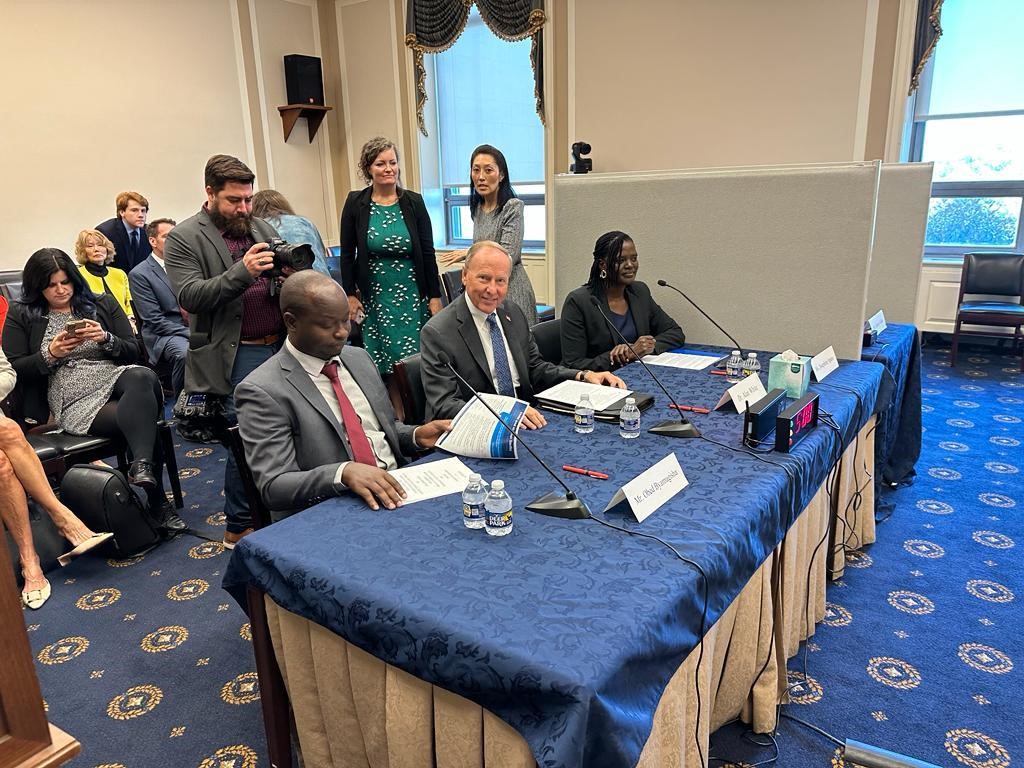
Published: September 20, 2023
By: Lennart Dodoo – Front Page Africa, Liberia
Washington, D.C. – Dr. Alan W. White, Co-Executive Director of the Advocacy Foundation for Human Rights, delivered a compelling testimony before the Committee on Foreign Affairs, Subcommittee on Global Health, Global Human Rights, and International Organizations, addressing the pressing issue of ritualistic killings in Africa, with a particular focus on Liberia. Dr. White shed light on the Foundation’s mission to combat human rights violations, including ritualistic killings and the alarming allegations linking these acts to high-ranking government officials, including the Executive Mansion.
The Advocacy Foundation for Human Rights, a non-profit organization based in Washington, D.C., has been dedicated to targeting human rights violators, exposing public corruption, and advocating for justice and accountability for the victims of such atrocities.
Others who testified before the Committee headed by Congressman Chris Smith Obed Byamugisha, Program Advisor, Kyampisi Childcare Ministries; Miriam Fullah, Trafficking in Persons Protection Manager, World Hope International; Josephine Aparo
Founding Member, Global Survivor Network and International Justice Mission.
In his testimony, Dr. White detailed the challenges faced in gathering information and conducting investigations into ritualistic killings, emphasizing the danger faced by sources who dare to speak out against these crimes.
Dr. White’s credentials as Chief of Investigations for the Special Court for Sierra Leone, where he directed criminal investigations leading to numerous indictments and convictions, lent significant weight to his testimony. He notably highlighted the conviction of former Liberian President Charles Taylor, the first sitting Head of State to be indicted and convicted for war crimes, serving a 50-year prison sentence.

The Special Court for Sierra Leone was established to investigate and prosecute those responsible for the devastating civil war in Sierra Leone, spanning from 1991 to 2002, which resulted in the deaths of over 70,000 people. Dr. White’s investigations led him to neighboring Liberia, which also experienced two brutal civil wars, resulting in the deaths of over 250,000 Liberians.
During his tenure as Chief of Investigations, Dr. White bore witness to unspeakable human rights violations perpetrated through ritualistic activities, a phenomenon he had not encountered before. He recounted a chilling story from 2002, where a 70-year-old man seeking a political position in a local Village, believed in black magic and sacrificed a 9-year-old boy to gain power. This horrifying act shed light on the prevalence of ritualistic killings in West Africa, where individuals commission murders to obtain body parts for magic spells and gain political power.
The Foundation has received disturbing information about the frequency of such killings and the allegations linking it to the Executive Mansion (The Office of the President) and other high-ranking government officials. Details of these atrocities are difficult to obtain.
Dr. Alan W. White, Co-Executive Director of the Advocacy Foundation for Human Rights
Dr. White’s testimony revealed the widespread practice of ritualistic killings during Sierra Leone’s civil war, with various rebel groups and warring factions, such as the Revolutionary United Front (RUF), the Armed Forces Revolutionary Council (AFRC), and the Civil Defense Force (CDF), routinely engaging in such acts. He described how rebels would boast about consuming the organs of their victims, believing it granted them supernatural power.
Importantly, Dr. White highlighted that ritual killings persist in Sierra Leone today, often escalating during election periods when some politicians believe they can gain power through human sacrifices. These alarming practices have also been reported in Liberia, where ritualistic killings are a combination of traditional beliefs and the criminal behavior of unscrupulous politicians.
Liberia has a history of ritualistic killings during its civil wars, with figures like Milton Blahyi, also known as ‘General Butt Naked’, publicly admitting to eating children’s hearts and taking part in human sacrifices to ensure victory in battle.
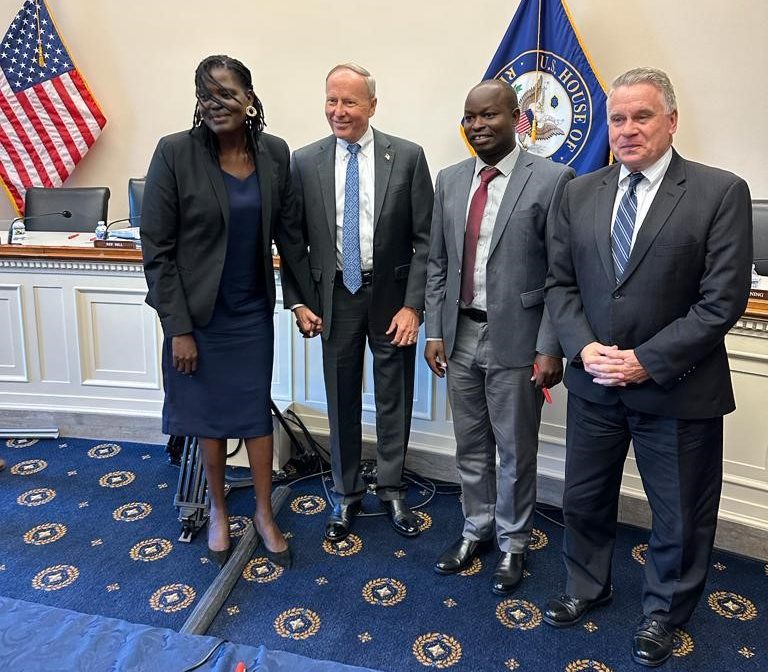
Dr. White’s testimony also touched upon recent cases of ritualistic killings in Liberia, such as the mysterious disappearance of three young men hired for a task in Bong County in October 2020 by the St. Moses Funeral Home. The bodies of these young men were never returned to their families, and investigations into their deaths remain unresolved, raising suspicions of involvement by influential individuals with close government ties.
“The Foundation has received disturbing information about the frequency of such killings and the allegations linking it to the Executive Mansion (The Office of the President) and other high-ranking government officials. Details of these atrocities are difficult to obtain,” he said.
He also linked the past regime to acts of ritualistic killings, saying “The Ellen Johnson Sirleaf administration during her 12 years (2006-2018) in office was plagued with ritual killings and despite vows to bring them to an end they continued. The same problems continue under the Weah administration and unlike Sirleaf there were no insiders reporting her direct involvement with the ritual killings.”
Dr. White commended the Subcommittee for its work and called for a thorough examination of the issue of ritualistic killings in Africa, especially in Liberia. He urged legislation that could bring an end to these heinous crimes, emphasizing the importance of exposing those involved and prosecuting them for their actions. The Advocacy Foundation for Human Rights remains committed to addressing this dark issue plaguing many African countries and hopes that the Subcommittee’s efforts will help put an end to these atrocities once and for all.
AND:
The killings must stop!
— Dr. Alan White asks U.S. for prosecution of those in ritualistic killings in Liberia

Published: September 20, 2023
By: New Dawn, Liberia
The U.N. former chief investigator for the special court of Sierra Leone, Dr. Alan White is requesting prosecution for ritualistic killings and despicable crimes against humanity in Liberia during war and in peace, saying “the killings must stop.”
Dr. Alan briefed U.S. lawmakers in Washington Tuesday, 19 September 2023, giving historical accounts of recent killings and those carried out during Liberia’s civil war for ritualistic purposes.
“Those involved need to be exposed and prosecuted for these heinous crimes. The killings must stop, and we hope that through legislature can effect change and stop this madness once and for all,” said Dr. White.
Dr. White indicated that former President Ellen Johnson-Sirleaf’s administration was plagued with ritualistic killings, and the same problem continues under incumbent President George Manneh Weah’s administration.
Unlike Sirleaf’s administration, Dr. White said, there was no insider reporting on her direct involvement on ritualistic killings.
However, he said he has received information that President Weah’s administration is being linked to the ritualistic killings of children.
He said sources have revealed that the police are only allowed to investigate these matters in a conspicuous but very superficial manner.
Dr. White explained that notable of these cases is the incident involving victims Robert Blamo, Jr., 29, Siafa Boimah, 33 and Blama, who went missing after being hired by St. Moses Funeral Parlor proprietor Mr. Moses Ahoussouhe to undertake a contract in Bong Mines.
Mr. Ahoussouhe was accused of hiring the three men on Saturday, 15 October 2020 to travel to Bong Mines to do technical work for him at his diamond creek when all three of them went missing. They were alleged to have drowned when a canoe they were riding in had capsized.
Dr. White said Ahoussouhe (St. Moses) retrieved the bodies of the three young men but they were never returned to their parents.
“He has close ties with the president and the Government of Liberia, and through the Ministry of Justice, he has contact as well. They failed to provide update or release the outcome of the investigation or report on the circumstances that led to the conclusion [that] they drowned,” said Dr. White.
Dr. White indicated that the aggrieved families believe that their children are being kept in a secret place to be used for ritualistic purposes.
He said the family members sought the assistance of the international community including the U.S. Embassy and the United Nations, leading the UN to call on the Liberian government to investigate killings which had been reported to link to ritual practice.
In 2021 alone, Dr. White said at least ten people were killed, reportedly linked to ritualistic killing or political motivation.
He added that they were either former officials or had links to former politicians. White noted that recent deaths involving some girls during President George Manneh Weah’s 2023 political campaign outraged the citizens.
He said the allegation is that the killings were done for ritualistic reasons. He also referenced citizens’ message to President Weah which was carried in the NewDawn newspaper’s headline that no amount of money or rituals can help President Weah and his Coalition for Democratic Change from leaving office after the 10 October 2023 elections.
Dr. White said his organization will continue to work on these issues in African countries, especially Liberia which experiences despicable crimes against humanity during war and in peace.
He recalled that during the 14 years civil war in Liberia, there were so many cases where gunmen, some of them child soldiers, ate victims’ body parts.
He stated that it was well documented that during Liberia’s civil war, ritualistic killing was a common place, naming Gen. Butt Naked, now Evangelist Milton Blayee as of the notorious culprits.
According to Dr. White, Mr. Blayee testified before Liberia’s Truth and Reconciliation Commission (TRC) that he ate children’s hearts.
He said Blayee indicated that human sacrifices were intended to ensure victories in battles.
AND:
Full text of the Testimony Submitted to The Committee on Foreign Affairs, Subcommittee on Global Health, Global Human Rights, and International Organizations – “Efforts to Address Ritual Abuse and Sacrifice in Africa” – September 19, 2023 – 10:00 a.m.
Statement of Dr. Alan W. White, Co-Executive Director – Advocacy Foundation for Human Rights – Washington, D.C. and Founding Chief of Investigations of the United Nations backed Special Court for Sierra Leone.

First of all I would like to the thank Chairman Congressman Chris Smith and Ranking Member Congresswoman Susan Wild, of the U.S. House of Representatives Global Health, Global Human Rights, International Organizations and other members of this Subcommittee for holding this very important hearing. I also want to publicly commend Congressman Smith for his tireless and unwavering efforts in seeking justice and accountability for countless victims of human rights violations from around the Globe. You provide a voice that otherwise would go unheard and a platform to those victims, who have suffered and continue to suffer with no one to turn to. Your steadfast support is globally recognized and very much needed in these troubled times we live in, and where so many atrocities are being committed around the world.
I am the Co-Executive Director for the Advocacy Foundation for Human Rights, a non- profit organization, located in Washington, DC. The Advocacy Foundation for Human Rights targets human rights violators, that engaged in public corruption and justice and accountability for the victims of such atrocities. We are actively engaged in conducting investigations and compiling information about those individuals who are committing ritualistic killings, especially in Liberia. The Foundation has received disturbing information about the frequency of such killings and the allegations linking it to the Executive Mansion (The Office of the President) and other high-ranking government officials. Details of these atrocities are difficult to obtain.
Sources to the Foundation are endangered just by speaking out – and I will discuss this later in my testimony.
Over the past 20 years I have been actively engaged in seeking justice and accountability for victims of human rights violations and conducting criminal investigations of war crimes and crimes against humanity on the continent of Africa, most specifically West Africa. During my last 3 years of Federal Law Enforcement service from July 2002-July 2005, I was detailed to the United Nations backed Special Court for Sierra Leone located in Freetown, Sierra Leone West Africa where I served as the Chief of Investigations. As Chief of Investigations of the Special Court for Sierra Leone I directed all criminal investigations which led to numerous indictments and convictions, most notably was former Liberian President Charles Taylor who was the first sitting Head of State to be indicted and convicted for war crimes and continues to serve his 50 year prison sentence.
The Special Court for Sierra Leone was established to investigate and prosecute those who bear the greatest responsibilty for the civil war in Sierra Leone, which lasted from March 1991 to January 2002 and resulted in the deaths of over 70,000 people. Our investigations led us to neighboring Liberia which had suffered two civil wars, the first from December 1989 to August 1997 and then again in 1999 to 2003 where over 250,000 Liberians were killed.
While serving as the Chief of Investigations I witnessed and investigated some of the most horrific and unspeakable human rights violations no one could ever imagine that someone could inflict on another human being. The horrors of civil war are always tragic, however, to see those involved in the commission of killing and torturing another human being by engaging in ritualistic activities was something I had not seen before and quite frankly prepared to deal with. Yet shortly after I arrived in Freetown, Sierra Leone I recall in August 2002 a news story where a 70-year-old man seeking to become a Paramount Chief of a local Village, a political position in traditional system of local government and an integral element of governance, was convicted of a ritualistic killing. I learned quickly that ritualistic killings were common place, particularly in West Africa. This story reported the man seeking to become a Paramount Chief believed in black magic and in order to get elected he needed to sacrifice a young child and in this case he bought a 9-year old boy for 800,000 leones ($160) from a family desperate for money.
Reportedly he gruesomely killed the 9-year-old boy by slitting his throat and removing his liver and taking some blood to local witch doctors in the neighboring country of Guinea where they would use in making a liquid concoction he could drink and give him what is known as “Juju”. This was a term I learned later meant power and used in ritualistic killings by rebels fighting in the civil wars, both in Sierra Leone and Liberia. Suprisingly, I learned that ritual killings or human sacrifices to local deities were customary in parts of West Africa, where some people commission killings to obtain body parts for magic spells to gain political power and influence.
Early on during my criminal investigations of war crimes and crimes against in Sierra Leone I heard routinely about ritualistic killings involving the various rebel group and warring factions in Sierra Leone, which included the Revolutionary United Front (RUF), the Armed Forces Revolutionary Council (AFRC) and the Civil Defense Force (CDF).
The war started in Kailahun, so we started our investigations in that part of the country where we uncovered numerous mass graves and in most cases the victims were civilians, including children. Their identities were mostly unknown, although some names were given. However, our witness interviews revealed that the RUF or RUF/AFRC were identified as the alleged perpetrator.
There were several causes of death of the victims reported including they were locked in houses and burnt, “ritual human sacrifice for protection” and gunshot and knife wounds. One of the witnesses interviews I recall involved a female RUF ex-child combatant, who advised that ritual killings were routinely practiced on enemy fighters or on civilians, including children. Sadly, the rebels from the various warring factions would boast about killing their enemy, many of which were young child soldiers, and eating their heart, drinking their blood, or eating other body parts claiming they received extra power from doing so.
This practice continues today in Sierra Leone and surges during election periods where people running for office believe that sacrificing a person, mostly younger boys and girls because it is believed the younger they are, the more power they get. The Voice of America (VOA) in Freetown in 2012 reported on the so-called ritual murders during election time and have been a part of African society for centuries. “In Sierra Leone, some believe ritual murders increase during election time because some politicians think they will gain political power from another human’s body parts.”
Chief Minister, NaCSA Boss Indicted in Attempted Ritual Murder of Virgins Girls in Freetown (sierraloaded.sl)
In October 2021 a senior government official, who reported to the President of Sierra Leone was indicted for an attempted ritual murder of six “Virgin Girls” in Freetown. The Chief Minister in Sierra Leone has been accused of forcing a primary school teacher to kidnap six virgin schoolgirls for ritualistic purposes. Fortunately, the plot was foiled when one of the whistleblowers came forward and reported it to the police which led to the Chief Minister’s arrest and indictment. However, reportedly he was released from custody while the investigation continued and to date no prosecution has occurred.
Dr Fred P.M. VAN DER KRAAIJ, author of a blog known as liberiapastandpresent.org, who lived and worked in Liberia as an Economist has chronicled a number of the ritualistic killings and other significant events in Liberia. In one of his blogs, he writes — “Today’s practice of ritual killings in Liberia – because it still exists! – mainly is a combination of traditional beliefs which inspire men-eating and modern-day criminal behavior of unscrupulous politicians who consider their ambitions worth more than the life of their victims. During the 14-year civil war (1989-2003) there were so many cases of gunmen – some of them child soldiers – eating their victim’s hearts and other body parts that the Catholic Church issued a formal denunciation of these practices (Stephen Ellis, The Mask of Anarchy, 1999: dust jacket). Liberia.”
It is well documented that during the civil wars in Liberia that ritual killings were commonplace and one of the most notorious rebels engaged in such horrific acts, is Milton Blahyi aka General Butt Naked, a feared former Rebel Commander who fought in the Liberian civil war. He testified before the Liberian Truth and Reconciliation Commission (TRC) where he publicly stated “I ate children’s hearts,” and admitted to taking part in human sacrifices as part of traditional ceremonies intended to ensure victory in battle. He also told BBC that his forces his forces had killed over 20,000 people.
During the first civil war (1989-1996) there were also other reports about Charles Taylor and his rebels accounts reportedly the formation of a group of cannibals called Top 20 of which he was a member. Reportedly the group, comprised of Taylor and 16 rebels of his own army known as the National Patriotic Front for Liberia (NPFL) engaged in human sacrifices at Taylor’s house.
On December 10, 2004, BBC publicly reported Hundreds of Liberian women had taken to the streets of the capital, Monrovia, protested against a recent wave of ritual killings. Bodies of children had been found with some of their organs missing, taken for what are viewed as magical properties. These killings were reportedly linked to politicians and the wealthy, who many believe to pay for the murders to increase their chances of good fortune.
There were other media reports documenting, including the Analyst, the discovery of the bodies of two unidentified children around the Du River area. One of the victims was a girl believed to be 12 years old. The media reports quoted eyewitnesses as saying that the body was discovered with “fresh blood coming from its mouth and nose.”
The Ellen Johnson Sirleaf administration during her 12 years (2006-2018) in office was plagued with ritual killings and despite vows to bring them to an end they continued. The same problems continue under the Weah administration and unlike Sirleaf there were no insiders reporting her direct involvement with the ritual killings. However, we have received information that current administration has been linked to ritualistic killings of children. Sources advise the police are not allowed to investigate these matters or if they do, it is done superficially as to not get to close to those involved. Also, because of the high-level links to the government it is taboo to say anything about it or otherwise you could be the next victim.
One of the most notable allegations of ritualistic killings involve the mysterious disappearance of three young men who were hired by the Proprietor of the St. Moses Funeral Parlor to undertake a task in Bong County. On October 17, 2020, Robert M. Blamo, Jr, 29, Siafa Gbana Boimah, 34, and Bobby S. Gbeanquoi, 32, were reported drowned in a river in Fuama district, lower Bong County when a canoe they were allegedly riding capsized while returning to their respective homes. They were reportedly contracted to do a, “piece of job” at the Oriental mining company owned and operated by Mr. Moses H. Ahossouhe (Proprietor of St. Moses Funeral Parlour), and one Mr. Abraham S. Samuels. It was reported by Mr. Ahoussouhe that the three young men drowned. The bodies were retrieved by Mr. Ahoussouhe and never returned to the parents. He has close ties to the President and the Government of Liberia (GOL), through the Ministry of Justice has failed to provide an update or release the outcome of an investigative report on circumstances that led to the conclusion they drowned. Why didn’t they release the bodies to the family?
The aggrieved families believed that their children are being kept in a sacred place to be used for alleged “ritualistic purposes.” The family members sought the assistance of the international community, including the US Embassy and the United Nations.
On December 10, 2021, the United Nations issued a public statement –“ A UN human rights expert today called on the Liberian Government to promptly investigate a series of killings that have occurred this year, some of which have reportedly been linked to ritualistic practices.”
At least 10 people have been killed in unclear circumstances in 2021, including five in September reportedly with suspected links to ritualistic practices or political motivations. According to information received by the Special Rapporteur on extrajudicial, summary, or arbitrary executions, Morris Tidball-Binz, three of the most recent victims were either former officials or had links to high profile former politicians.
Even a recent death of some young girls involved in political campaign event held by the CDC sparked outrage by the citizens and allegations their deaths were done for ritualistic reasons. The local headlines read – Liberia – Citizens to President Weah: ‘No ritual can help you from leaving office after the elections.’
On August 24, 2023, the New Dawn News reported Several residents of Montserrado County have told incumbent President George Manneh Weah that no amount of alleged human sacrifice, ritual, and money can prevent him and the Coalition for Democratic Change (CDC) from leaving office.
“We want to tell President Weah that no amount of human sacrifice, ritual, and money can help in this election,” potential voters said in Montserrado County.”
The foundation will continue to work on this issue and applauds the work of this Subcommittee and its members. We hope that this Hearing will shed a very bright light on a very dark issue plaguing many African countries and especially Liberia who experienced this despicable crime against humanity during war and peace, yet it doesn’t stop. Those involved need to be exposed and prosecuted for these heinous crimes. The killing must stop and hope your legislation can effect change and stop this madness once and for all.


